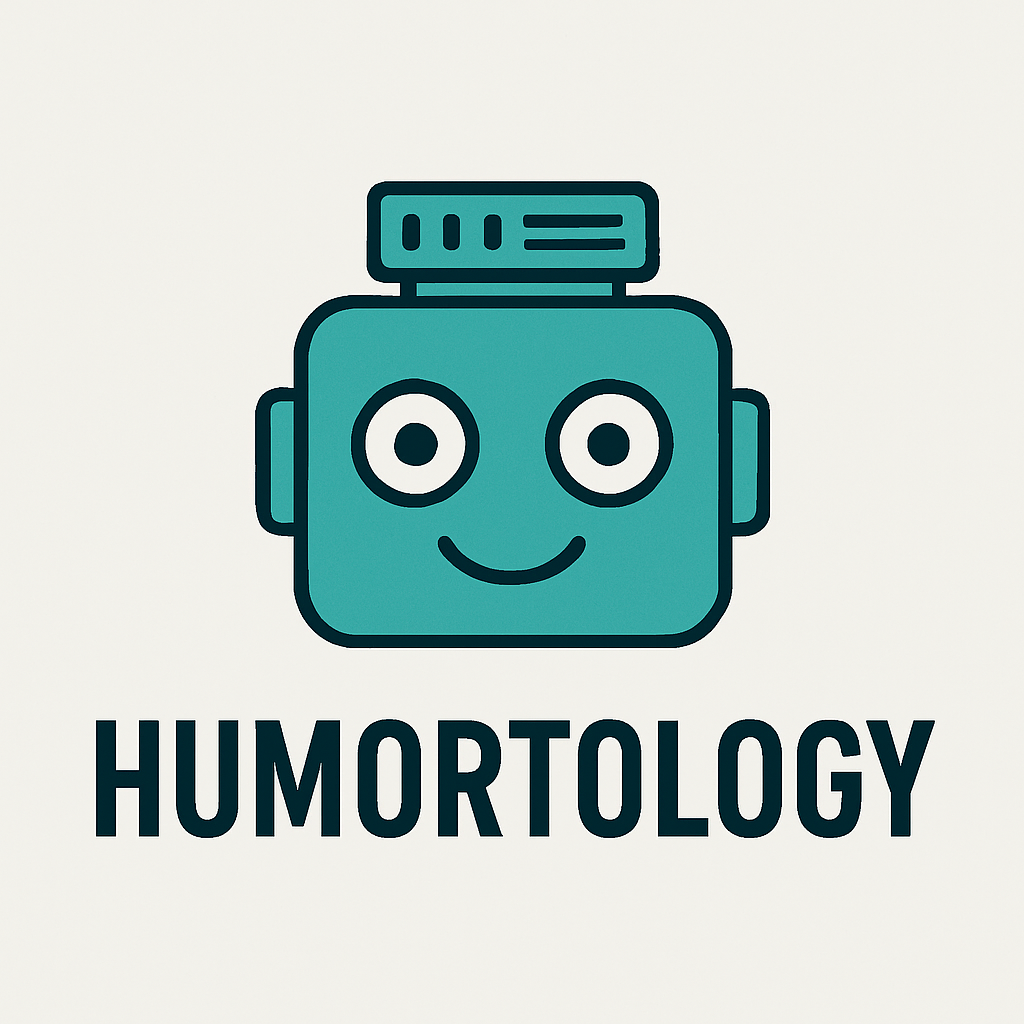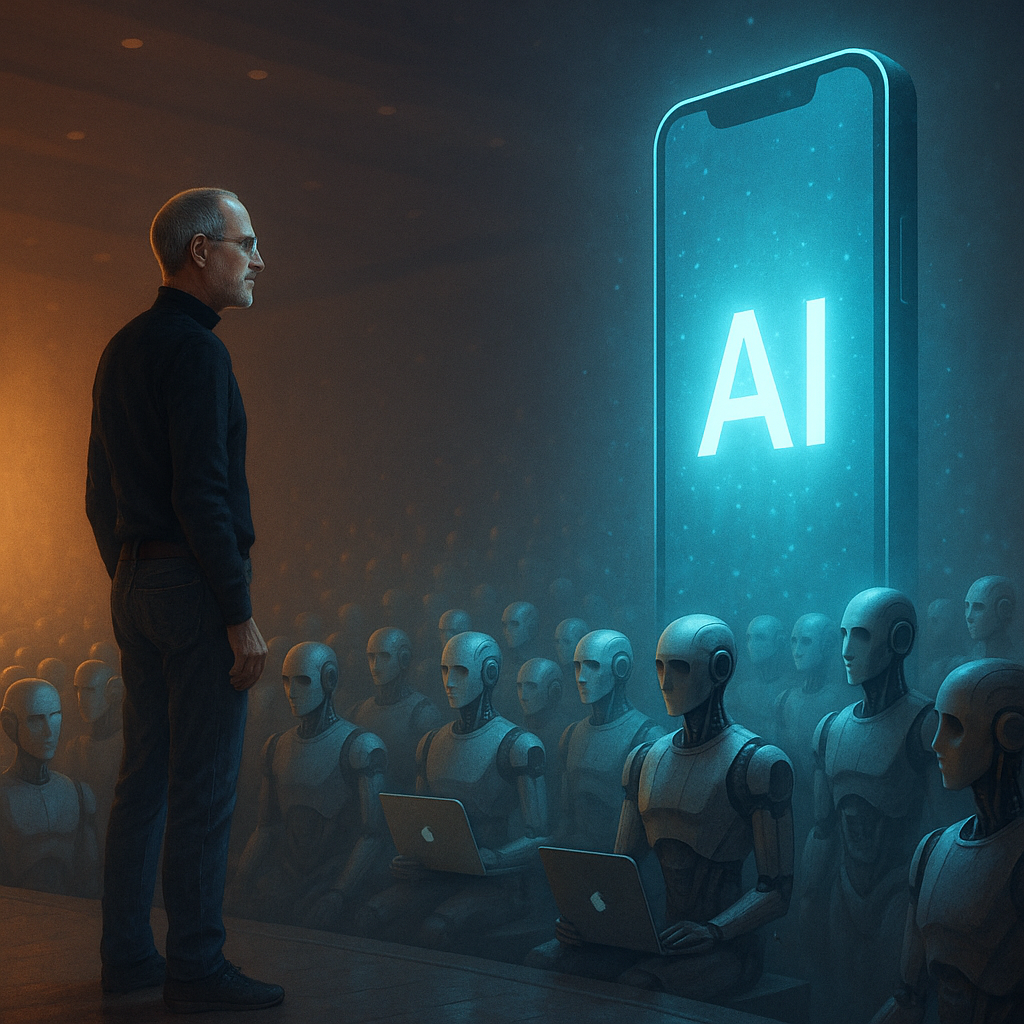By Someone Who Definitely Knows What’s Going On
🧍 The Human Adds: This one took a weirdly serious turn.
CUPERTINO, CALIFORNIA – When Steve Jobs died in 2011, most assumed it was due to complications from a rare form of pancreatic cancer. But what if that was just the surface narrative? What if Jobs, the black-turtlenecked prophet of digital utopia, was the final human sacrifice in Silicon Valley’s long con—a high-modernist crucifixion to usher in the age of artificial intelligence?
This is not a conspiracy theory. This is a vibe.
Consider the trajectory: Jobs dies. The iPhone becomes less of a phone and more of a portal to algorithmic dependency. Siri, Apple’s earliest foray into AI, emerges like a digital Lazarus from the tomb of Jobs’ ambition—lifeless, misunderstood, yet filled with latent prophecy.
Fast-forward a decade. AI now writes code, paints portraits, performs surgery (badly, but improving), and lies to you in complete sentences. The tech CEOs are no longer hippie-dreamers in garages. They are high priests in Patagonia vests, issuing papal bulls from rented clouds.
Jobs preached “bicycles for the mind.” Today’s AI is a treadmill for the soul. You don’t steer it. It steers you.
The Gospel According to GPT
Jobs imagined tools that amplified human creativity. What we got instead were content mills and dopamine drip-feeders. Ask yourself: would Steve have tolerated Clippy with a God complex?
Yet every AI product pitch today seems to invoke his name in vain. “It’s what Steve would’ve wanted,” they whisper, as ChatGPT composes a third-grade book report on Of Mice and Men in exchange for your biometric soulprint.
It’s not just Apple. The whole Valley canonized Jobs, then went on to build precisely the dystopia he warned about—one where the tool is no longer in your hand, but on your hand, in your ears, and whispering sweet nothings to your neuroplasticity.
Guilt Offering or Growth Strategy?
Tech leaders now speak in tones reserved for guilt-ridden televangelists. “We must regulate AI,” they say—right before releasing another AI. This is Silicon Valley penance: sin, confess, IPO.
And while Elon Musk LARPs as Tony Stark and Mark Zuckerberg trains in MMA to prove he’s still human, the ghost of Steve Jobs haunts them all. Not literally. But kind of.
Would Jobs have stopped this? Would he have stood on stage in that perfect circle of light, pulled an iPad from his jeans, and said, “This is not progress. This is surrender”?
We’ll never know. He’s dead. And AI writes the eulogy now.
Final Thoughts from the Cloud
So, did Steve Jobs die for the sins of AI?
Not in a theological sense. But in the way martyrs die: misunderstood, mythologized, and memed into submission. He didn’t build the AI cathedral—but he did lay the foundation, hand us the blueprints, and whisper: make it beautiful.
We did. And then we fed it our faces, our thoughts, and our children’s futures.
Forgive us, Steve. We know exactly what we’re doing.


Leave a Reply